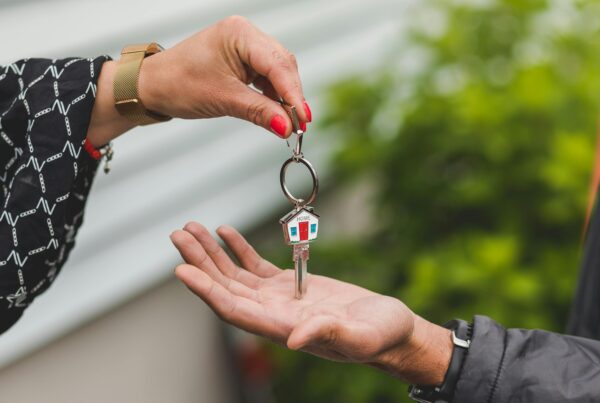When searching for their dream condo, potential buyers may encounter a unique term: non-warrantable condos. These units do not meet Fannie Mae and Freddie Mac’s conventional standards, resulting in limited financing options. This means homebuyers need to get creative in finding alternative mortgage products.
This article aims to help hopeful homeowners understand non-warrantable condos, recognize their options, and learn what lenders will require from owners.
What is a Non-Warrantable Condo?
A non-warrantable condo is one that cannot be approved for a conventional, FHA, VA, or USDA loan. Fannie Mae and Freddie Mac will deem a condo non-warrantable if it does not meet specific financial or safety standards. Condos may also be considered non-warrantable if they have low occupancy, membership requirements, or a high percentage of timeshares.
Loans for non-warrantable condos cannot be sold on the secondary mortgage market, making them much riskier for lenders.
Why Having a Warrantable Condo Matters?
Non-warrantable condos are a critical consideration because choosing this property type will make it difficult, if not impossible, to get a home loan from conventional mortgage lenders. Additionally, government-backed loans cannot be used to purchase these properties.
Depending on your financial health and condo-buying goals, you need to recognize the pros and cons of warrantable or non-warrantable properties.
Potential Issues of Non-Warrantable Condos
A non-warrantable condo can be a serious liability for you and any lender willing to provide you with a loan. These are some of the major concerns:
Fannie Mae and Freddie Mac Criteria Eligibility
Fannie Mae and Freddie Mac have strict eligibility requirements for owner-occupied units, including single-family homes and condo properties. Condo units that do not meet federal building standards will be deemed non-warrantable.
Additionally, a condominium may fall into the non-warrantable category if the units are not secured by real estate, such as timeshares used by non-owners. This also applies when they are utilized as short-term rentals, such as condo hotels.
Difficulty Obtaining Financing
Due to their non-conforming status, obtaining a mortgage for a non-warrantable condo from conventional lenders can take time and effort. This limitation can complicate the financing process for buyers interested in these properties.
Legal Struggles
It is possible to remove a non-warrantable status, but it will take time and, possibly, the assistance of legal professionals. You’ll need to work with the condo’s management office during the qualification process, and they may be reluctant to upgrade the condo unit or remove commercial space in the building.
Ownership Structure
The ownership structure of certain condo properties can make it difficult to change the status of a non-warrantable condo. If one entity owns more than 20% of the units, lenders consider this risky because if that single person defaults, the entire condo complex may become insolvent.
HOA Cash Flow Problems
A Homeowners Association needs to charge appropriate HOA dues to cover their expenses. HOAs that have negative cash flow or do not allocate at least 10% of their funding to a reserve fund will not be considered warrantable, as this is a sign of increased risk.
Example of a Non-Warrantable Condo
A specific condo is near a golf club, so the condo property has a high number of short-term rentals to satisfy those who visit the course. 30% of the units are investment property owned by one company.
As someone participating in a timeshare program for this condo, you now wish to purchase it outright with a mortgage while living there part-time. However, due to the large percentage of units owned by a single entity and the prevalent short-term rental activity, conventional mortgage lenders may consider this condo non-warrantable.
How to Find Out if a Condo is Non-Warrantable?
You can check whether a condo is warrantable when you examine the requirements for FHA loans. The Department of Housing and Urban Development maintains a list of all the things necessary for a warrantable condo. These requirements also apply to VA loans.
Are There Non-Warrantable Condo Loans?
Some lenders offer non-warrantable condo mortgages, but they are rare and may not have advantageous terms. Due to the high risk, down payment requirements are higher; you can expect to give a much larger down payment, sometimes up to 30%.
Alternatives to Non-Warrantable Condos
The most common non-warrantable condo loan option is a portfolio loan, which requires an excellent borrower profile. These also require larger down payments and a strong cash flow to secure.
Because a non-warrantable condo mortgage is so hard to find, you may be better off looking for a warrantable condo unless you have the funds to provide a large down payment and are okay with increased risk.
If you intend to make this condo your permanent home, F5 Mortgage offers condo loan programsfor warrantable new condo projects or single units eligible for conventional mortgages.
Can a Non-Warrantable Condo Become Warrantable?
A non-warrantable condo can become warrantable, but it can be a difficult process.
You will need to speak to the condo association with a list of the issues that are preventing Fannie Mae and Freddie Mac from allowing conventional loans, such as safety issues or owners using the property as timeshares. Sometimes, the HOA will have to raise their dues to pay for the improvements, which can cause friction with current owners – particularly if they are banned from using the property as a hotel.
This takes time, and you will need to prove to a lender that the property is now in compliance. Otherwise, you will have to pursue non-warrantable condo loans that are risky and come with large down payments. Most of the time, it’s better to choose a condo already qualified for typical loan programs.
Final Thoughts
Non-warrantable condominiums may arise when units are used for commercial purposes, are primarily owned by a single entity, are financially insolvent, or are plagued by significant safety concerns.
A non-warrantable condo mortgage is rare and can be difficult to access unless you have a sterling borrower profile and ample cash reserves. Changing a condo unit’s status with Fannie Mae and Freddie Mac can also prove challenging.
Rather than seeking non-warrantable condo loans, consider working with a real estate agent to ensure your new property qualifies for a conventional mortgage. F5 Mortgage offers numerous loan options for all types of borrowers, ensuring that those who are qualified can find a program that works for them.
Contact us todayto learn more about how we assist hopeful home buyers in finding great financing. In just a few minutes, you can also get a free quoteto prepare yourself for the mortgage process. We look forward to helping you achieve your dream of home ownership, whether that is a single-family residence or a beautiful condominium.









Your point of view caught my eye and was very interesting. Thanks. I have a question for you.
Thank you for your sharing. I am worried that I lack creative ideas. It is your article that makes me full of hope. Thank you. But, I have a question, can you help me?
I don’t think the title of your article matches the content lol. Just kidding, mainly because I had some doubts after reading the article.
Thank you for your sharing. I am worried that I lack creative ideas. It is your article that makes me full of hope. Thank you. But, I have a question, can you help me?
Your article helped me a lot, is there any more related content? Thanks!